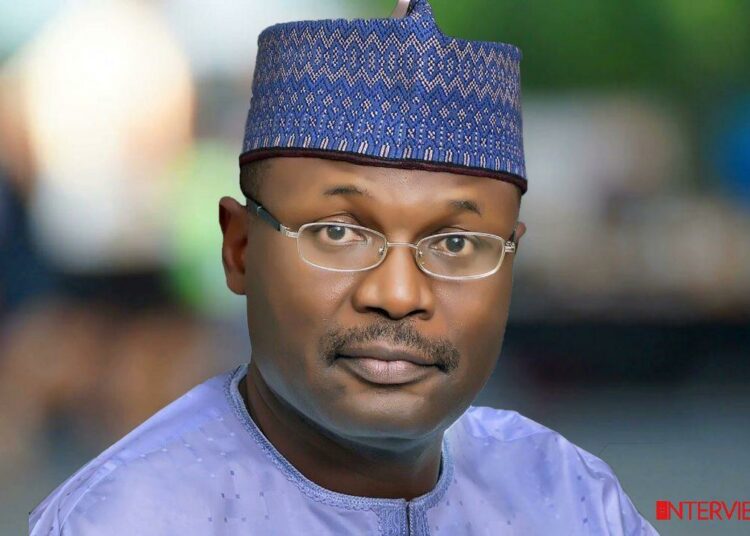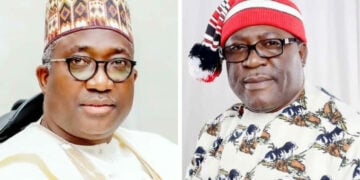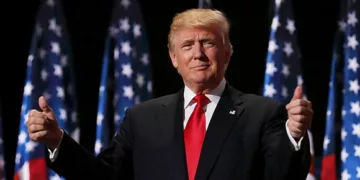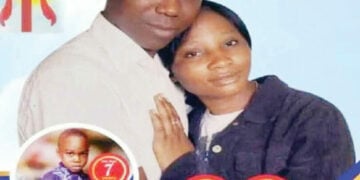As the December 9, 2025, expiration date for the tenure of the chairman of the Independent National Electoral Commission (INEC), Professor Mahmood Yakubu, draws closer, stakeholders in the electoral process have suggested the qualities his successor should have.
Yakubu, the longest-serving chairman of the electoral body, was first appointed on November 9, 2015, for a five-year term of office and was reappointed by the then-President Muhammadu Buhari on November 9, 2020.
After Senate confirmation, he assumed duty for a second five-year term on December 9, 2020, becoming Nigeria’s first chairman of the national election management body to serve for two consecutive terms.
So, as Yakubu is expected to take a bow after 10 years of election management and President Bola Tinubu is to appoint the next chairman of the commission, stakeholders, particularly Civil Society Organisations (CSOs) are of the view that the next INEC boss must be of proven integrity, non-partisan, and has sound academic and professional background should be appointed to occupy the critical office.
He should also be technologically knowledgeable.
They contended that only someone with those qualities can guarantee electoral credibility and deepen democracy, especially with the 2027 general election and other off-cycle polls, such as the Ekiti, Osun governorship, and Federal Capital Territory(FCT) Area Councils polls around the corner.
The Civil Society Legislative Advocacy Centre (CISLAC) said the upcoming appointment is a watershed moment for the nation’s electoral credibility.
In an interview with LEADERSHIP, on behalf of the organisation, CISLAC’s senior programme officer, Gimba Hassan, said: “This should not be treated as just another political appointment. It’s a defining decision that will shape the credibility of the 2027 general elections and determine public trust in our democracy.”
The CISLAC official outlined key criteria and expectations for President Tinubu as he considers potential candidates, saying the person must have “unquestionable integrity and impartiality.
For this, he called on the President to select an individual of unimpeachable integrity, referencing Prof. Attahiru Jega’s appointment in 2010 as a gold standard.
“The next INEC Chairman must be seen as neutral, competent, and resistant to political pressure,” Hassan said.
“The person must be capable of addressing past electoral failures. The 2023 elections witnessed widespread challenges, including the INEC Result Viewing Portal (IReV) failure, logistical setbacks, and communication breakdowns.
“The next chairman must acknowledge these shortcomings and provide clear strategies to prevent their recurrence. Collaborative and transparent leadership,” the CISLAC officer said, noting that democracy thrives on inclusion.
Hassan said the new chair must actively engage with civil society, political actors, the media, and the public.
“We need a referee who listens, engages, and reassures all stakeholders,” he added.
Hassan challenged lawmakers to pose critical questions about the nominee’s vision for tackling voter apathy, improving electoral technology, and ensuring fairness across the political space.
He said that with a growing youth population, only a forward-thinking INEC head, who can modernise Nigeria’s electoral system through expanding digital transparency, enhancing biometric verification, and considering diaspora voting, should be appointed to the position.
“The future of credible elections lies in innovation, not stagnation. The credibility of the 2027 elections begins with the choice of the INEC chairman. Nigerians are watching—and they expect a leader, not a loyalist,” Hassan said.
Another CSO, the Grassroots Centre for Rights & Civic Orientation (GRACO), believes firmly that appointing a new INEC chairman should reflect the country’s age-long aspirations for genuine and comprehensive reform of its electoral process.
The executive director of GRACO, Armsfree Ajanaku, urged Tinubu to act as a statesman by nominating an INEC chairman with integrity, an understanding of technology, strong character, and passion to make Nigerians’ votes count.
Tinubu must show he is a statesman
Ajanaku warned that sectional, sectarian or partisan considerations should not determine the appointment.
“Although the crushing contradiction of a president who is politically partisan appointing the INEC chairman remains one of the weak links in our electoral process, President Tinubu should act as a statesman by nominating an INEC chairman with the integrity, understanding of technology, strong character and passion to make the votes of Nigerians count.
“These qualities are essential to inspire confidence in Nigerians and address the Nigerian people’s voter apathy and declining levels of participation in the electoral process.
“Therefore, the nominee should have the technical competence, capacity and credibility to navigate the current challenges in our electoral process. The nominee should have a good grasp of technology and how to address its risks and weaknesses.
“With several off-cycle and the 2027 general elections looming, the nominee cannot afford to learn endlessly on the job. As such, experience, a technology-savvy track record in election logistics and results management, integrity, transparency, and accountability should be the watchwords in nominating a replacement for the outgoing INEC Chairman,” he noted.
Independent panel should nominate INEC chair
Also, in a document entitled: “A Memorandum for Constitutional Alteration to Improve Trust in INEC Leadership Selection,” made available to LEADERSHIP, two pro-democracy organisations called for the alteration of Section 154(1), and sought the establishment of an independent panel to select the INEC leadership.
The groups, African Centre for Leadership, Strategy and Development (Centre LSD) and Women’s Rights Advancement and Protection Alternative (WRAPA), suggested that the panel should consist of eight institutions to screen and nominate people for the selection and approval of one person by the president and National Assembly.
Centre LSD and WRAPA further recommended that a nominee from the National Judicial Council (NJC) chair the screening committee, with the Nigerian Bar Association (NBA) nominee, preferably the president, as the co-chairman.
According to their recommendations, other members to complete the composition include the President of the Academic Staff Union of Universities (ASUU), the president of the National Union of Journalists (NUJ), and the president of the Nigeria Labour Congress (NLC), with the secretary of the Independent Corrupt Practices Commission (ICPC) serving as the committee’s secretary.
They said: “As Professor Mahmood Yakubu’s tenure draws to a close later this year after serving two terms in office, making him ineligible for reappointment, the ongoing discussions regarding his successor have sparked renewed calls for comprehensive electoral reforms.
“Central to these discussions is the need for reforms that strengthen the integrity of the electoral system through systemic changes. This includes addressing how the leadership of the INEC is appointed, ensuring that the selection process is transparent, merit-based, and free from political influence.
“The current appointment process for INEC leadership remains questionable. This proposal advocates for establishing an independent body that will be responsible for selecting a set of candidates for INEC leadership to the President, who shall in turn nominates one from the set to enhance the credibility, transparency, and public trust in the electoral landscape,” the forum noted.
Enumerating the qualities the electoral umpire boss must possess, the forum noted that the “INEC leadership criteria should be explicitly stated in the Third Schedule of the Constitution of Nigeria or relevant sections.
“Key qualifications should include a strong academic foundation, in addition to relevant experience in governance, law, or public service and a proven leadership ability, demonstrated through past roles or positions.”
Specifically, the Centre LSD and WRAPA recommended that a nominee for the position of INEC chairmanship must be a first degree holder; a professional with 12 years of experience, including at least five years in public service or election management, supervision or observation and be technically proficient.
They further recommended that the nominee possess leadership qualities such as proven integrity, strategic thinking, decision-making, crisis communication abilities, conflict management, collaboration, and teamwork.
President should prioritise Nigeria’s interest
To the director general of African Democratic Youth Congress (ADYC), Murtala Haliru Dantoro, DG ADYC, President Tinubu should put Nigeria first and appoint someone with integrity who would not allow vote buying as the next chairman.
“If the president is going to choose the next INEC chairman, he should put Nigeria first. He should look at the conditions Nigerians are going through. Whichever he chooses, the advice from the youths is that he should choose someone with integrity, somebody who thinks of Nigeria first, not the northerners first, not the southerners first, not the Ibo, not the Muslims and Christians first, or the APC first, not the ADC first, but someone who thinks Nigeria-first.
“So my advice to the President is that he should please look for someone who has integrity, somebody who will not allow vote buying,” he said.
Advising president on INEC chair a waste of time
For Dr Chris Okeke, a lecturer in the political science department at the Nnamdi Azikiwe University, Awka, it would be a waste of time to advise Tinubu on who he should appoint as INEC chairman.
“I consider it a waste of time to set an agenda for the president on that subject matter. Experience has shown that the political elite and ruling parties in Africa who want to contest in elections are mostly not interested in credible processes but in any means, particularly foul, that lands victory on their laps.
“It is difficult to tell an African president who will be re-contesting for the office to appoint an impartial electoral commission’s chairman. Expecting that he will listen to you is living in a fool’s paradise. I am convinced that the president will not be interested in anything that will not guarantee him electoral victory in the next presidential election.
“Even if he develops a kind of body language that suggests he wants the right thing done, those around him may likely prevail against him or the system not to.
“Practically speaking, it is evident that those who feed from a morally bankrupt system will not want to do something that will take away their spoils.
“Otherwise, finding Nigerians with strong moral standing is not difficult if they are genuinely interested in cleaning up the electoral process. Those in power know them. They also know what needs to be done for this republic to work; they clearly understand Nigeria’s political culture and solutions to the problems.
According to him, several policy papers from various conferences and workshops on making Nigeria’s elections credible have been produced and made accessible.
“What is lacking is the political will to implement these things, and I do not see that being developed anywhere at this time,” he argued.
10 Years Of INEC Under Yakubu (2015-2025)
Mahmood Yakubu, a Professor of History and International Relations, broke the jinx as the first Nigerian head of the electoral body to be reappointed for a second term.
History reveals that no chairman of the country’s electoral body has served more than one term in office from Eyo Esua (1964–1966), Michael Ani (1976 – 1979), Victor Whisky (1979 – 1983), Eme Awa (1987–1989), Humphrey Nwosu (1989–1993), Okon Uya and Sumner Dagogo-Jack (1994–1998), Ephraim Akpata (1998 – 2000), Abel Guobadia (2000-2005), Maurice Iwu (2005-2010) to Attahiru Jega (2010-2015).
However, Yakubu’s case became different when President Buhari reappointed him in 2020.
Yakubu’s stewardship as INEC chairman, which will be 10 years on December 9, 2025, was never a bed of roses but a mixture of “the good, the bad, and the ugly,” as it is said.
While efforts to get Yakubu to speak on his 10-year tenure, achievements, and regrets have yet to bear fruit, a document chronicling his achievements from November 2015 to December 2025, made available to LEADERSHIP, showed that under him, INEC regularised the dates of general elections and FCT Area Council elections as the general election now holds on the third Saturday in February of the election year for the presidential and National Assembly elections, and two weeks later for the governorship and state assembly elections.
Innovations under Yakubu
Under Yakubu’s leadership, the Commission introduced the Continuous Accreditation and Voting System (CAVS) to replace the cumbersome process of first completing accreditation before voting. CAVS simplified the voting procedure and addressed the potential disenfranchisement of voters.
For the first time since 1996, the Commission successfully expanded voter access to polling units by creating 56,872 new polling units in June 2021.
The Yakubu Commission built a more efficient, comprehensive and a predictive EMSC dashboard that reports over 1,000 election
monitoring indicators and integrates all the Commission’s election monitoring tools comprising the Election Management System (EMS), the Election Operation Support Centre (EOSC), the Electoral Risk Management Tool (ERM) and the INEC Security Alert and Notification System.
The Yakubu Commission also introduced several technological tools that transformed election administration in Nigeria. Among them are a new generation INEC Voter Enrollment Device (IVED), a new Biometric Voter Accreditation Device (BVAS), online portals for managing candidate nomination, as well as for accreditation of party agents, election observers and the media, and the INEC Result Viewing Portal (IReV)
For the first time in Africa, INEC took the lead in adopting AI in election management by creating a division on AI and Election in the ICT Department.
The Yakubu Commission also inaugurated and institutionalised the Continuous Voter Registration (CVR) at the LGA and other designated centres in April 2017, registering 14,283,734 and 9,518,188 new voters for the 2019 and 2023 general elections, respectively.
The Yakubu Commission introduced vastly improved DDCMs (direct data capturing machines) with more efficient data-capturing capabilities, especially for fingerprint capture, a significant challenge to the previous DDCMs.
For the first time in the CVR exercise, the Yakubu Commission introduced an Online Portal that allows for pre-registration, transfer, updates on details, and requests for the replacement of a damaged, defaced, or faded permanent voter’s card (PVC) by citizens.
Deployment of Two-Way Advanced Biometric Identification System (ABIS)
Another innovation of the Yakubu Commission is the deployment of the two-way ABIS, which resulted in the confirmation of 2,780,756 (22.6%) voters as double or multiple registrants and invalidation, reducing the number of registered voters to 9,518,188 from the 12,298,944 that completed registrations at the end of the CVR exercise on 31 July 2022.
Highest number of elections conducted
As chairman of INEC, Yakubu conducted the highest number of elections in the history of election management bodies in Nigeria. He conducted both the 2019 and the 2023 general elections,19 off-cycle governorship elections, over 300 supplementary and by-elections, and three FCT Area Council Elections in April 2016, February 2019, and February 2022.
Under the leadership of Professor Mahmood Yakubu, INEC updated the Regulations and Guidelines for Political Parties and developed Enhanced tools for Tracking and Monitoring of Political Parties.
The Yakubu Commission engaged and collaborated with the National Assembly and other stakeholders to improve the Electoral Legal Framework.
Inclusivity in the voting process
During the tenure of Yakubu, the Commission collaborated with CSOs to improve access and participation of persons with disabilities (PwDs) in the electoral process through the deployment of Assistive Voter Devices
The Yakubu Commission also ensured the full participation of vulnerable citizens in the electoral process through priority voting.
The Yakubu Commission reviewed the Framework and Regulation for voting by Internally Displaced Persons (IDPs), strengthening the legal provision which enabled them to register and vote in the 2019 and 2023 general elections and the off-cycle governorship election.
Bumpy start and reign
Yakubu was first in the eye of the storm shortly after his appointment, following the declaration of the November 2015 Kogi State Governorship election inconclusive. The Commission had earlier announced the results of the election from all the 21 local government areas in the state.
Also, the events that characterised the adjudged flawed governorship elections in Ekiti and Osun states and the last-minute postponement of the 2019 Presidential and National Assembly elections 2019 brought him to public criticism.
Yakubu, a former director-general of the Tertiary Education Trust Fund (TETFUND), was equally caught in the middle of the storm after the heavily criticised 2019 general elections and the Bayelsa and Kogi off-season governorship polls, which were viewed by some as shams.
IReV raised poll credibility
But Yakubu came under reprieve and public applause following the outcome of the September 19 Edo and October 10 Ondo governorship elections with the introduction of the INEC Result Viewing (IReV) portal that enabled Nigerians to view polling unit results in real time as the voting ended, reducing the incidences of results manipulation.
According to INEC, IReV was first experimented with in the August 8, 2020 Nasarawa Central State Constituency by-election and subsequently the Edo and Ondo polls to further strengthen the transparency in the election result management system, which has remained a major source of mistrust in Nigeria’s electoral process.
The innovation restored some level of confidence in INEC as, at the end of the Edo Governorship election, even the worst critics of the commission and the electoral process, such as the Peoples Democratic Party (PDP) applauded the use of the virtual portal by INEC to upload results directly from the polling units as it said the application made it impossible for electoral violators to hijack the electoral process.
2023 election controversy
However, despite the significant technological deployments such as the BVAS and the IReV portal, the controversies surrounding the 2023 elections, the technical glitches that affected only the presidential poll while sparing National Assembly elections conducted at the same breadth, delayed uploads and other issues with the off-cycle and by-elections count against INEC under Yakubu.





